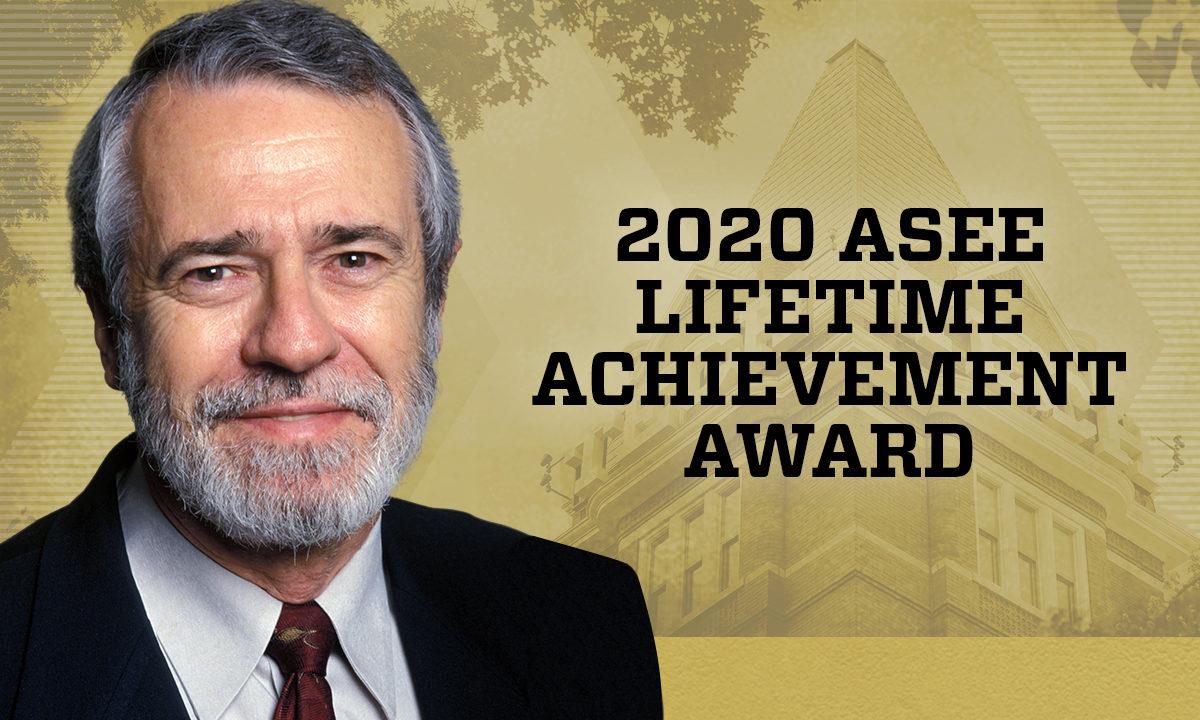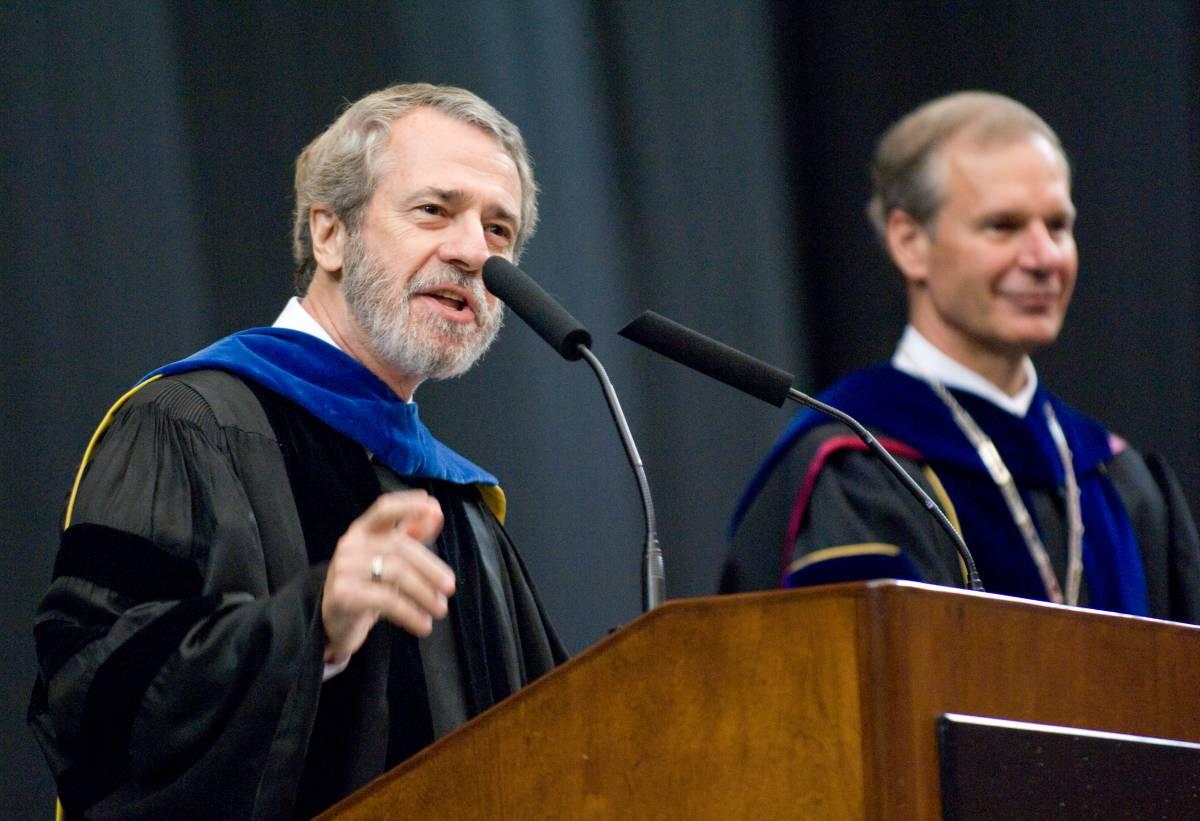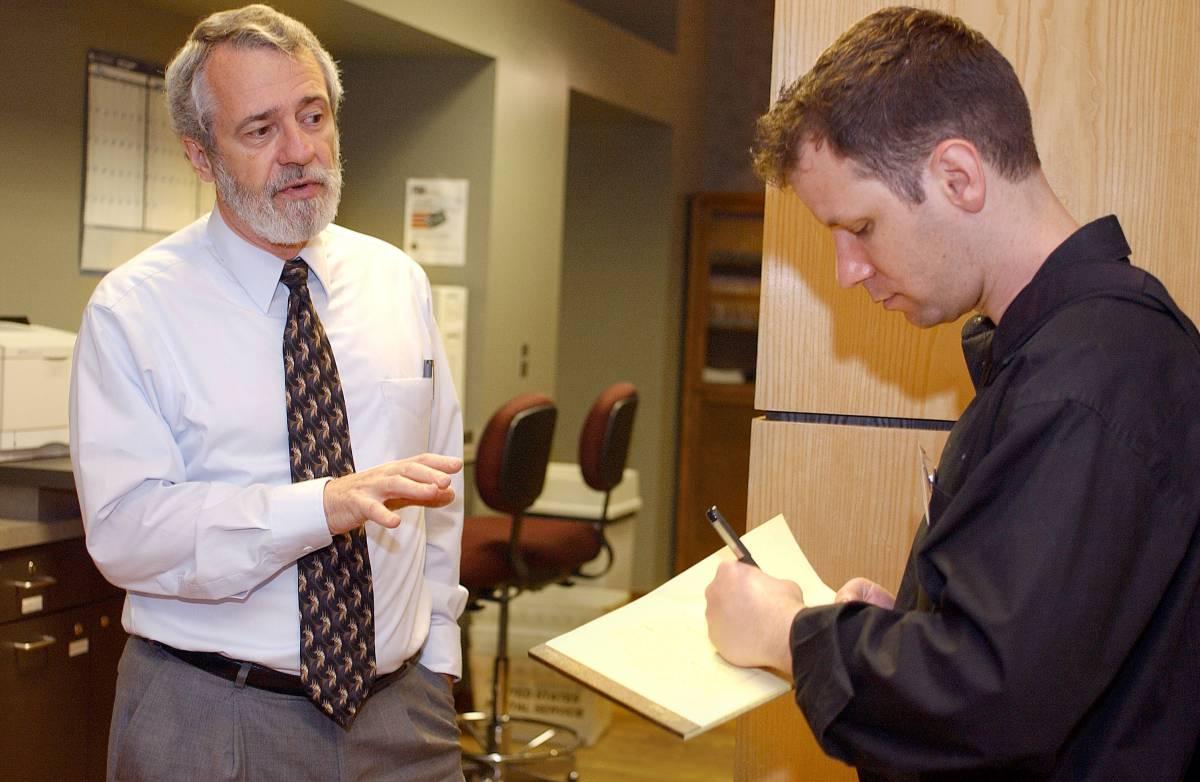Former engineering dean and founding biomedical chair recognized for sustained contributions to engineering education at Georgia Tech

Don Giddens has never been particularly fond of inertia, as it applies to himself or his long career as a leader in academic research. And that sustained expression of energy has paid off for him, the students and faculty he has worked with, and the institutions he has led, including the College of Engineering at the Georgia Institute of Technology.
In his nine years as dean (2002-2011), the college grew to become the largest engineering school in the nation. Before that, as founding chair of the Wallace H. Coulter Department of Biomedical Engineering (BME) at Georgia Tech and Emory. With that, he helped launch an innovative, collaborative academic enterprise that has resulted in the largest BME program in the nation, and one of the most respected.
In other words, Giddens is good for whatever team he happens to be part of. So, for his many years of leadership and contributions, the American Society for Engineering Education gave him its 2020 ASEE Lifetime Achievement Award in Engineering Education.
“If you live long enough and keep moving, hopefully good things happen,” Giddens quipped after receiving the news. “But truly, this is really a great honor. It recognizes and appreciates the role of education and the affect it has on young people, from K-12, through college and post-graduate training. It’s been a pleasure to have seen so many of them grow in their lives and careers. There is a propagation effect at work in engineering education. That’s one of the main purposes of the ASEE.”
He oughta know. He was president of the organization from 2011 to 2012, after retiring as dean of Georgia Tech’s College of Engineering. During his time at the helm there, Giddens granted almost 13,000 undergraduate, 7,700 masters, and 2,500 doctoral degrees, and research funding coming into the college grew dramatically, from $77 million in 2002 to $204 million in 2010.
“I was committed to growing the college, because I really felt like we were able to take advantage of our sheer size to have an impact,” Giddens says. “A large number of minorities and women were granted degrees, and our college was recognized as a top five school. All of that, I think, spoke to our quality and diversity, as well as size. Those are things that I fondly look back on.”
And Giddens says he got something out of his earlier experience as chair of the Coulter Department that influenced his efforts as dean of Tech’s college of engineering: a core belief in interdisciplinary research.
“The interaction with Emory, serving on the Engineering Deans Counsel with ASEE, it all had an influence. But it’s something that I tried to incentivize as dean at Georgia Tech, interdisciplinary programs,” he says. “Not just in the College of Engineering, but with other units across campus. I felt it was important to stimulate interdisciplinary work, which is largely based on research, but spills over into education.”
Giddens first arrived at Georgia Tech in 1958 and received all of his degrees (in aerospace engineering) from Tech, joining the faculty in 1968. Eventually, he became director of the School of Aerospace Engineering at Tech (1988-1992).
He left that post to become dean of the Whiting School of Engineering at Johns Hopkins, but was lured back to Georgia Tech in 1997 to help establish and lead the Coulter Department, which links the breadth and scope of the College of Engineering with Emory University’s School of Medicine, a unique combination of public and private institutions.
“Helping to get that department up and going is one of the things that I am proudest of, career wise,” Giddens says. “Look at the trajectory and impact of the department – it was a remarkable opportunity to create an interdisciplinary program, and we started with a blank sheet of paper.”
Giddens believes he was merely in the right place at the right time with the right people (colleagues such as Ajit Yoganathan and Bob Nerem, all part of BME’s human foundation at Georgia Tech).
He says one of the most significant moves of his career was bringing Wendy Newstetter, a learning scientist, into the department. “I’d become aware of the cognitive and learning scientists that were working at Georgia Tech in the College of Computing and thought that since we were going to build a curriculum, maybe we could get them interested in collaborating and using us as guinea pigs,” Giddens recalls.
With Newstetter showing the way, the Coulter Department adopted the problem-based learning approach (which was being used in medical schools) as its education foundation, creating an environment for students that emphasized collaboration over competition, immersing students in real-world, complex problems.
So began a culture of engineering education that still drives the department – the movement that Giddens facilitated more than 20 years earlier is still moving, energetically. In 2019, Newstetter (now assistant dean for educational research and innovation in the College of Engineering), Joe Le Doux (associate chair for undergraduate learning and experience in the Coulter Department), and Paul Benkeser (senior associate chair of the Coulter Department) won the National Academy of Engineering’s Gordon Prize for Innovation in Engineering and Technology Education.
“Don had the foresight and vision for what BME could become as a major and as a discipline,” Le Doux says. “And he made a statement that education and learning was a top priority in our program.”

